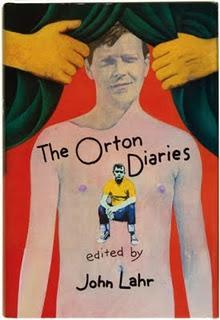World Book Night is an annual celebration of reading and books which takes place on 23 April. It sees passionate volunteers give hundreds of thousands of books away in their communities to share their love of reading with people who, for whatever reason, don’t read for pleasure or own books.
It is run by The Reading Agency - the charity with a mission to give everyone an equal chance to become a reader. Because everything changes when we read.
In the UK 35% of people don’t regularly read despite reading for pleasure being a globally recognised indicator in a huge range of social issues from poverty to mental health.
World Book Night is about giving books and encouraging those who have lost the love of reading – or are yet to gain it – to pick up a book and read. Line by line, paragraph by paragraph until they too have discovered the power of reading and the opportunities in life that reading can open the door to.
For World Book Night events in London visit the World Book Night Website www.worldbooknight.org
To mark the occasion, we're reblogging 24 classics (one every hour!) from our London Walks Reading List series…
 The Great London Reading List! Essential London books that Londoners take away on holiday to remind them of home… books visitors should read before arriving in London… fact, fiction, poetry, all genres welcome. If you’re in the mood to recommend a great London bookshop, too, we’d love to hear it! All suggestions to the usual address, please, or leave a comment below or get in touch via Twitter @londonwalks.
The Great London Reading List! Essential London books that Londoners take away on holiday to remind them of home… books visitors should read before arriving in London… fact, fiction, poetry, all genres welcome. If you’re in the mood to recommend a great London bookshop, too, we’d love to hear it! All suggestions to the usual address, please, or leave a comment below or get in touch via Twitter @londonwalks.
The Orton Diaries
By Joe Orton Edited by John Lahr
 The Sixties, as any fule kno, were Swinging. Just as Victorians were Eminent and Georgian architecture had Splendour, the Sixties, we are assured, made like a pendulum and swung in a riot of dayglo colours, miniskirts and moptops. The inarguability of this “fact” is made all the more concrete (to borrow a solid metaphor from that oh-so-modish 60s building material) by the built-in ham-stringing of all eye witness accounts: if you can remember the 60s, runs the old chestnut, then you weren’t there.
The Sixties, as any fule kno, were Swinging. Just as Victorians were Eminent and Georgian architecture had Splendour, the Sixties, we are assured, made like a pendulum and swung in a riot of dayglo colours, miniskirts and moptops. The inarguability of this “fact” is made all the more concrete (to borrow a solid metaphor from that oh-so-modish 60s building material) by the built-in ham-stringing of all eye witness accounts: if you can remember the 60s, runs the old chestnut, then you weren’t there.Enter Joe Orton. From his little corner of unlovely Islington (times have changed) Orton chronicles his unique experience of the 1960s from three standpoints.
As a playwright (“the Oscar Wilde of welfare state gentility” as he was styled by The Observer) we follow his picaresque progress through the still staid world of the post-John Osborne British theater establishment (the “old theater of reassurance” that he aimed to satirise in his posthumously-produced What the Butler Saw). He wins awards, he rubs shoulders with The Beatles, chauffeur-driven cars arrive at his rented flat in Noel Road to whisk him to meetings and premieres.
His second viewpoint is of a working-class outsider from unlovely Leicester (O! How times haven’t changed!). He is teased (in one famous diary entry) by theatrical royalty in the shapes of producers Oscar Lewenstein and Michael White over a £13 fur coat bought for him by his agent, the legendary Peggy Ramsay. “I look better in cheap clothes,” Orton observed, adding, “I’m from the gutter and don’t you ever forget it because I won’t.”
His principal view is formed by his homosexuality – “de-criminalisation” the dread phrase that was supposed to herald an age of liberalism way back in 1967 informs the always devastatingly expressed cynicism of both Orton’s award-winning plays and the pages of his diary. The great John Lahr, Orton’s biographer and editor of The Orton Diaries describes Orton’s London not as Swinging but as “a soiled world of loss, isolation, ignorance.” It’s a story that is set but a few miles from the fashionable King’s Road: yet it could be in another universe.
The whole tale comes to a startling climax with Orton’s brutal murder – beaten to death with a hammer by the hand of his long-time/long-suffering partner and erstwhile literary collaborator Kenneth Halliwell on the 9th August 1967. (Theatre critic Benedict Nightingale observed a few years back in the New York Times that Orton was the first major British playwright to be murdered since Christopher Marlowe.)
“If you read this diary,” read Halliwell’s suicide note (in the best tradition of headline-grabbing, scandalous stories, Halliwell turned his canon to self-slaughter after killing Orton) “all will be revealed.” All most certainly is: in terms of debunking the myths of Swinging London, no diary/memoir does more.
(The Orton Diaries is currently out of print, but it is well worth a nose around the book stalls under Waterloo Bridge or the shops on the Charing Cross Road for a copy.)
And because World Book Night falls on Shakespeare's 450th birthday, here's the BRAND NEW episode of the London Walks Podcast: Shakespeare & London…
A London Walk costs £9 – £7 concession. To join a London Walk, simply meet your guide at the designated tube station at the appointed time. Details of all London Walks can be found at www.walks.com.












